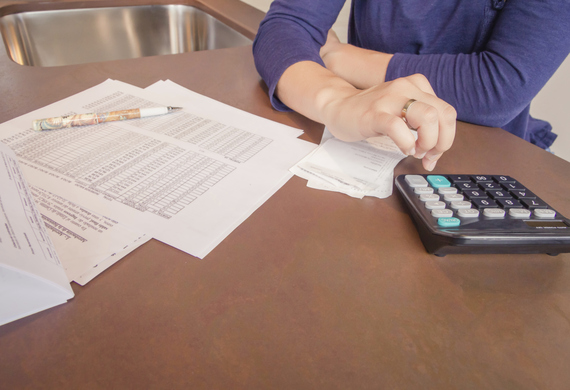 There is nothing simple about divorce. More than likely, you feel as though all aspects of your life are in turmoil -- from your family to your emotional well-being to your finances. With the exception of child custody issues, the financial impact of divorce is usually the most frightening part of ending a marriage. How many of us feel truly confident when it comes to handling our finances while we're married? Add a divorce into the equation and it's even more confusing and scary.
Your head is probably spinning with questions. Will I be able to support myself? Will I have to go back to work or find a higher-paying job? Will I lose my home? And, if I keep my home, will I be able to afford it? While it is tempting to allow fear to paralyze us, your financial future will be much more secure if you educate and empower yourself.
There is nothing simple about divorce. More than likely, you feel as though all aspects of your life are in turmoil -- from your family to your emotional well-being to your finances. With the exception of child custody issues, the financial impact of divorce is usually the most frightening part of ending a marriage. How many of us feel truly confident when it comes to handling our finances while we're married? Add a divorce into the equation and it's even more confusing and scary.
Your head is probably spinning with questions. Will I be able to support myself? Will I have to go back to work or find a higher-paying job? Will I lose my home? And, if I keep my home, will I be able to afford it? While it is tempting to allow fear to paralyze us, your financial future will be much more secure if you educate and empower yourself.Here are seven steps to take as soon as you are confronted with a divorce.
Make copies of all financial statements and records. While your checking and savings accounts may be obvious, don't forget to include 401(k)s and retirement accounts, insurance policies, tax returns, mortgage statements, and any other documents relating to your finances. Once you gather them together, be sure to store them in a safe place.
Know your assets and liabilities. Write down everything you own and everything you owe. Most assets and liabilities accumulated during the marriage are community property and community debt. Both you and your spouse are equally responsible -- no matter who racked up that credit card bill -- and if one of you defaults on a community debt after the marriage, the other may be held liable.
Pull your credit report. Work on improving your credit if it is less than stellar. If you don't have credit in your name alone, begin to establish it now.
Open your own credit card and bank account. Be sure, however, to not incur any additional debt.
Manage joint accounts closely. If at all possible, work with your spouse to pay down debts and lower liabilities. Spouses behaving badly often run up credit card bills or withdraw funds in joint accounts. Check your balances regularly and close joint accounts when you can.
Understand that not all property is created equal. A home appraised at $700,000 is not the financial equivalent of a retirement account with a present value of $700,000 or a family-owned business that grosses $700,000 a year. Before agreeing to give up or to keep an asset, you must know its tax consequences, cost basis and current value.
Create a budget. A budget will do two things: It will give you a realistic picture of what you'll need to live on and will also help in your settlement negotiations. The sooner you're able to reduce unnecessary spending and realistically asses your money, the better your financial situation will be. Talk to a financial expert who specializes in divorce. A divorce can cause us to think emotionally rather than logically. A Certified Divorce Financial Analyst or a Financial Advisor who is experienced with divorce financial planning can help you to clarify your goals, build your financial future and offer you peace of mind.
No comments:
Post a Comment